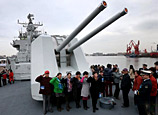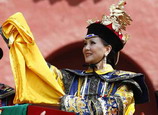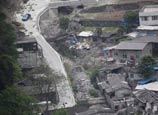
In the wake of the 2008 financial crisis, it has dawned on more people that whenever some unexpected economic events occur, whether they originate in the US or not, a large amount of capital will flow back to the US market in favor of less risky US treasury bonds.
The result is a rising US dollar, causing bond prices to soar but yields to plummet. Meanwhile, currencies other than the dollar, along with prices of US-registered assets, will plunge rapidly in value.
With developed countries increasingly keen on applying quantitative easing (QE), random economic events have a bigger impact on price distortion. These events, which have become normal, are troublesome for emerging markets including China.
For one thing, they prompt a flight of capital, leading to an excess of domestic money supply that complicates the stability of consumer prices and the overall economy. For another, stock prices take successive drops due to the impact of downturns in neighboring markets.
It is thus important to dissect the cause of these market vagaries, to prevent similar future risks and formulate China's financial development strategy.
The goal of growing the real economy is to enhance the standard of living, while that of printing money and providing financial services is to ensure sustainable, orderly business investment and household consumption.
However, the collapse of the Bretton Woods system spelled the end of the gold standard and any financial discipline based on it. The world economy has since been propped up entirely by a system of credit.
When bubbles burst
In a system sustained by credit, the affluence of a country or an individual can be measured by the currency's buying power. If the growth of money supply and credit outstrips economic growth, asset bubbles and inflation are almost inevitable. There is a real risk of write-downs once the bubbles burst, and inflation saps purchasing power.
On the contrary, amid busts, risk aversion galvanizes people to be more conservative about investing and spending.
Because cash is then more valued, a great deal of capital will be left idle, unable to be absorbed by the real economy. The shortage of cash will further diminish business profits, people's pay and capital gains, thereby compounding the downturn.
Given this reason, we now attach greater importance to the security of our wealth management than we did in the age of the gold standard. In the past, currency devaluation, be it a reality or a mere possibility, would send people snapping up gold in search of asset security. Today, certain financial debacles that threaten wealth are sure to be followed by a buying spree on gold or other secure assets, such as the US dollar or short-term US treasury bonds.
Credit standard age
Generally speaking, in a credit standard age, a country's most secure assets tend to be government bonds. For instance, in Japan's two decades of recession, the country's worsening demographic woes and dwindling fertility rate compelled its citizens to pursue safe assets like crazy.
On the one hand, most households deposit money in banks, reassured that the government would pump liquidity in them. Depositors seldom care about whatever small gains accrue from bank savings. On the other hand, as domestic firms are reluctant to invest, and consumers prefer liquid assets, Japanese banks have to invest in secure assets promising abundant liquidity, namely, Japanese bonds.
As a result we witness a paradox. The bigger Japan's trade deficit, the faster the yen rises, forcing the Bank of Japan to intervene at some point.
And a consequence of intervention is that banks receive more savings and have a stronger desire to buy up national bonds. This explains why Japan runs gargantuan fiscal deficits yet the risk of bankruptcy is smaller than that of several debt-ridden eurozone nations.
But in a more export-oriented economy like China, Beijing's purchase of US debt with its foreign reserves has increased our dependence on the US economy in a dollar-centric world. So China suffers dearly when global capital finds a safe haven in the US, denting the securities' prices and gains.
Besides, when the US government implements QE measures to address unemployment and anemic asset prices at home, China's foreign reserves are at risk of incurring losses.
In China, since development of a bond market is proceeding slowly, and that market is at the early stage of liberalization, the population's needs for safe assets cannot be fully satisfied.
By contrast, in markets rife with scarcity, typically property markets in first- and second-tier cities, speculative capital has a clear upward pressure on home prices. When the money supply grows too fast, fueling expectation for looming inflation, people feel the urge to invest in real estate, as if it were a more secure choice.
The misinformed perception of real estate's nature as a vehicle of financial security is seriously undermining the health of China's real economy.
All in all, speeding up the construction of a mature, healthy securities market in China is an imperative. In the long run, elevating the profile of the yuan is also vital to enhancing the security of China's foreign reserves and assets.
The author is executive dean of the School of Economics at Fudan University. The views are his own. Shanghai Daily staff writer Ni Tao translated his article from Chinese.
















 Giant pandas safe in quake-hit zone
Giant pandas safe in quake-hit zone


![]()
